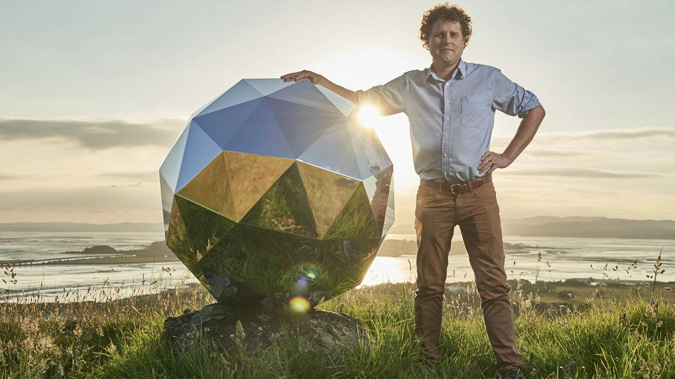
An astronomer says New Zealand has become the Donald Trump of space, with Rocket Lab's latest space launch.
The New Zealand space company has confirmed it's launched a flashing disco ball into orbit.
Astronomer Ian Griffin has tweeted that New Zealand's first act as a space-faring nation has been to pollute the night sky for all mankind.
He says people should enjoy the night sky while they still can, because it won't be the same for the next nine months.
So; NZ’s first act as a spacefaring nation is to pollute the night sky. For all mankind. Nice one. Not.
— Ian Griffin (@iangriffin) January 24, 2018
The only good thing about the “Humanity Star” (aka the NZ pollutes the night sky project) is that it burns up in 9 months. 9 months is way too far away IMHO.
— Ian Griffin (@iangriffin) January 24, 2018
So.. according to Trump era entrepreneurs, flashing disco balls in space are the way to promote philosophical reflection. I beg to differ. That’s why next week I will be watching the eclipse and reflecting how a supposedly green nation has vandalised the night. #sad pic.twitter.com/O928AK9Rzk
— Ian Griffin (@iangriffin) January 24, 2018
Enjoy this sight while you can still can. For the next nine months a flashing disco ball (NZ light pollution project) is going to flash across it. “For Humanity” #nonsense pic.twitter.com/XxfmdEphOa
— Ian Griffin (@iangriffin) January 24, 2018
Rocket Lab founder Peter Beck has put a geodesic sphere into orbit which he hopes will be one of the brightest objects in the night sky.
The ''Humanity Star'' is an oversize carbon fibre sphere much like a disco ball that is one metre in diameter and should be visible with the naked eye anywhere in the world.
What is effectively New Zealand's first satellite, was launched on Sunday on the company's Electron rocket which reached orbit carrying other payload as well.
The Humanity Star has 65 highly reflective panels. The sphere spins rapidly, reflecting the sun's light back to Earth, creating a similar effect as a disco ball that can be seen in the night sky.
Rocket Lab's calculations show Humanity Star will likely be visible in the night sky in New Zealand from late February, though it is still settling into its orbit so the company can't pinpoint it just yet.
Beck said he wanted the star to help people understand and improve life on Earth.
The Humanity Star orbits the Earth every 90 minutes and is visible from everywhere on the planet at different times.
-additional reporting Grant Bradley, NZ Herald
Take your Radio, Podcasts and Music with you









